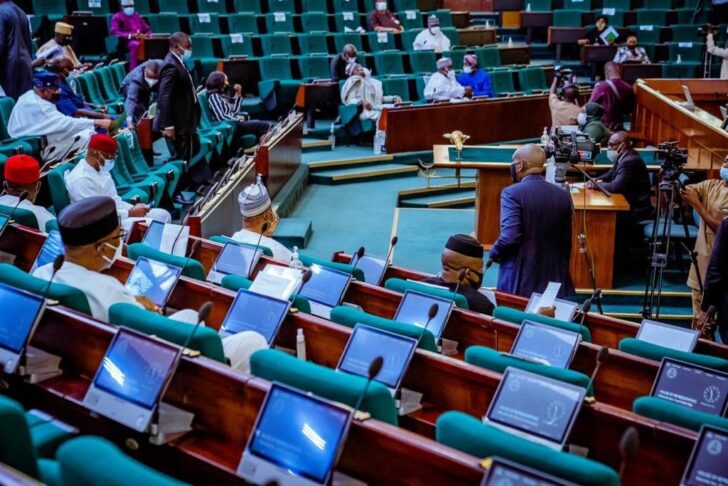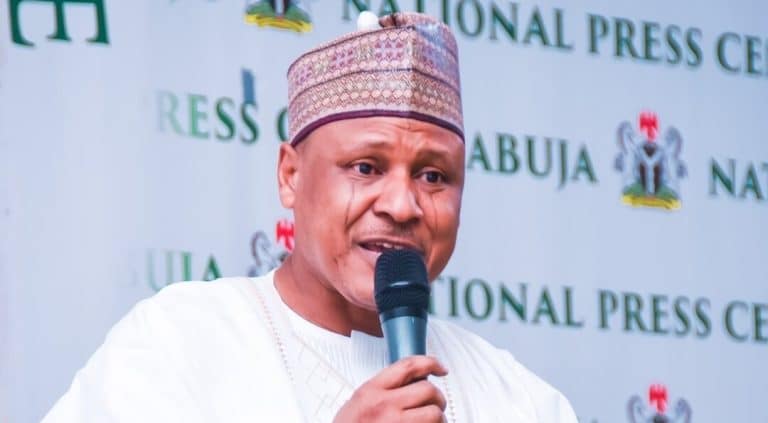The House of Representatives has approved the 2025-2027 Medium Term Expenditure Framework and Fiscal Strategy Paper (MTEF/FSP), setting the stage for the presentation of the 2025 federal budget.
The framework, submitted by President Bola Ahmed Tinubu, outlines key parameters for the country’s fiscal policy, including a projected exchange rate of N1400 to the US dollar, a crude oil price of $75 per barrel, and an oil production target of 2.06 million barrels per day.
The lawmakers, while approving the framework, also raised concerns over financial transparency, particularly in relation to the Nigerian National Petroleum Corporation (NNPC).
The House called for a thorough investigation into allegations that NNPC withheld a staggering ₦8.48 trillion from the Federation Account as claims for fuel subsidies.
In addition, they demanded an inquiry into reports from the Nigeria Extractive Industries Transparency Initiative (NEITI), which alleges that NNPC failed to remit $2 billion (approximately ₦3.6 trillion) in taxes to the federal government between 2020 and 2023.
The Chairman of the House Committee on Finance, James Abiodun Faleke, presented the MTEF to the House, noting the key fiscal targets set by the government. “The framework provides a solid foundation for the 2025 budget, focusing on economic growth and sustainable development,” Faleke said.
He confirmed that the exchange rate of N1400 to the dollar would remain in place, subject to review in the coming year.
However, the projections were met with some opposition, particularly regarding the inflation rate, which was set at 15.75%. Minority Leader, Kingsley Chinda, and several other lawmakers argued that this figure was overly optimistic, suggesting a more cautious approach.
They also proposed adjusting the crude oil price to $77 per barrel while lowering the production target to 2 million barrels per day.
In another significant move, the House approved a Promissory Note Programme and Bond Issuance to settle outstanding claims and liabilities owed by the federal government to states, high-priority judgments, and federal ministries.
The lawmakers also endorsed the recommendation for quarterly investigative hearings to track compliance with the Fiscal Responsibility Act, urging punitive measures for agencies that fail to adhere to the regulations.
The House of Representatives has directed the Committee on Finance to review and initiate inquiries into the operations of the Nigerian Export Supervision Scheme (NESS) Act.
This includes examining the effectiveness of oil and gas exports monitoring by the Ministry of Finance and the Central Bank of Nigeria (CBN), with an eye toward enhancing revenue collection through better transparency and oversight.
Moreover, the committee was tasked with investigating the operations of the Import Duty Exemption Certificate (IDEC) program and evaluating the impact of import waivers on revenue generation by the Ministry of Finance and Nigeria Customs Service.
The lawmakers also took steps to address the country’s mounting debt profile, with the budget projections indicating a fiscal deficit of ₦13.08 trillion.
The 2025 federal budget, proposed at ₦47.9 trillion, includes a capital expenditure allocation of ₦16.48 trillion, exclusive of statutory transfers, and recurrent expenditure pegged at ₦14.21 trillion.







